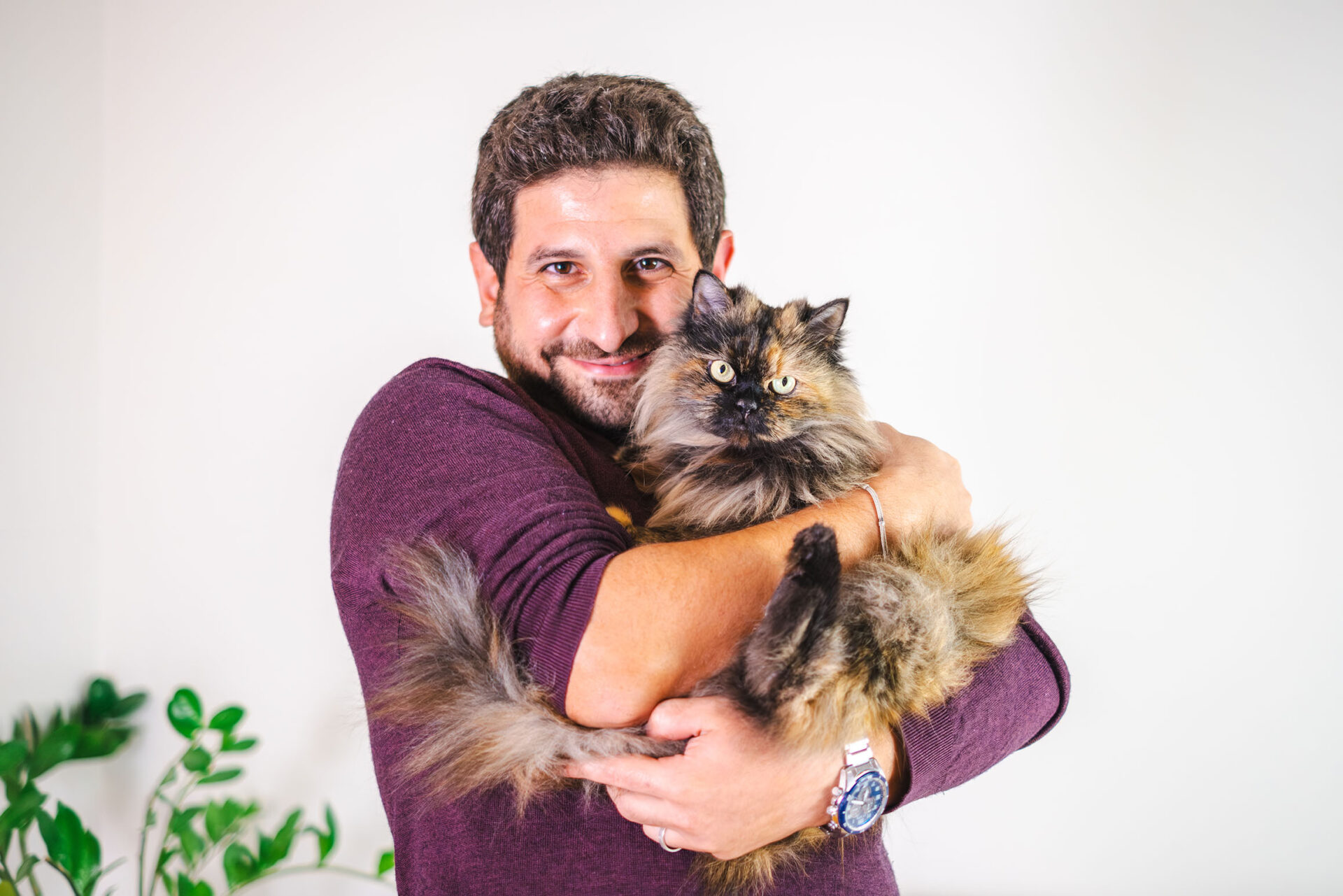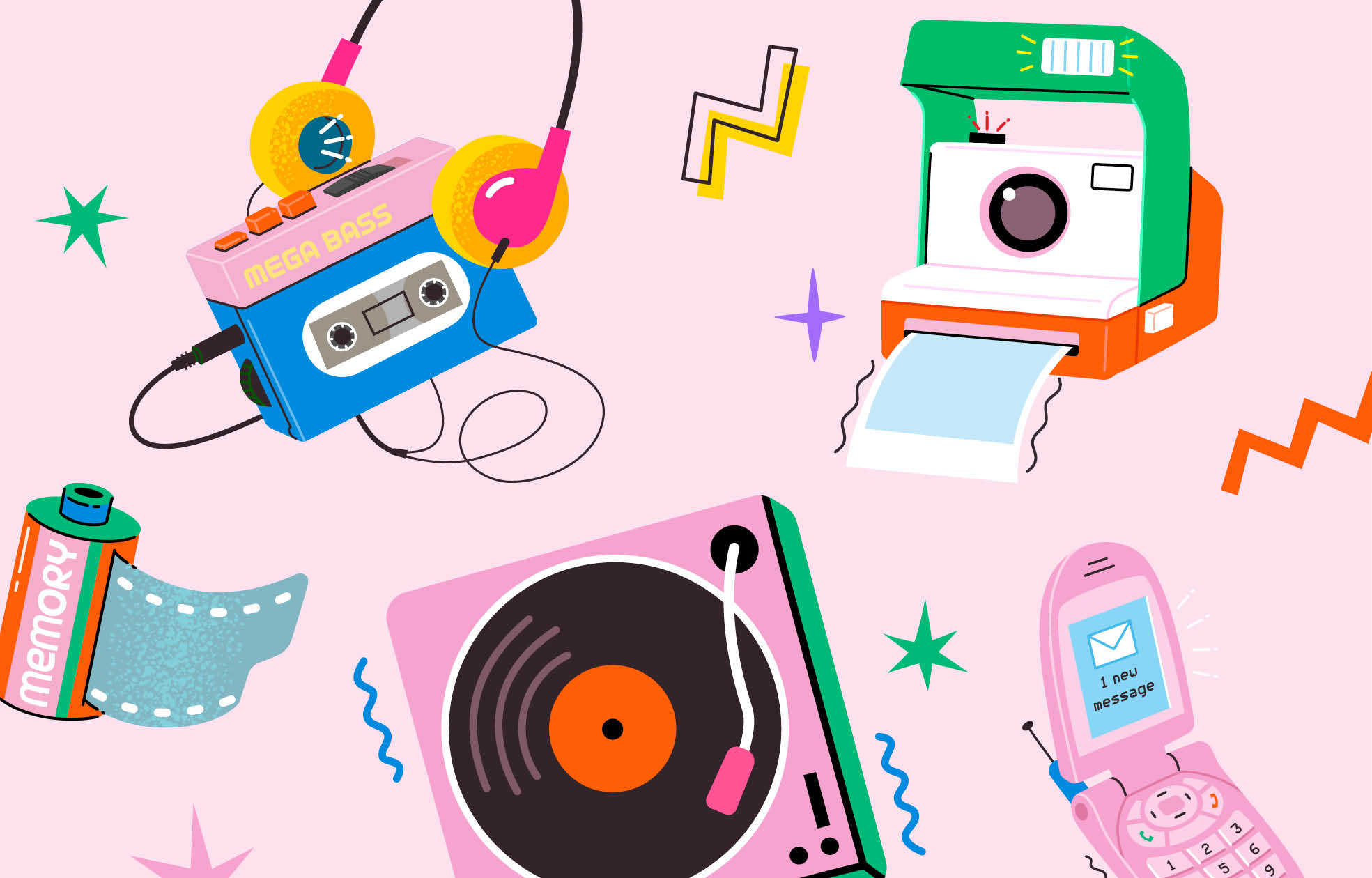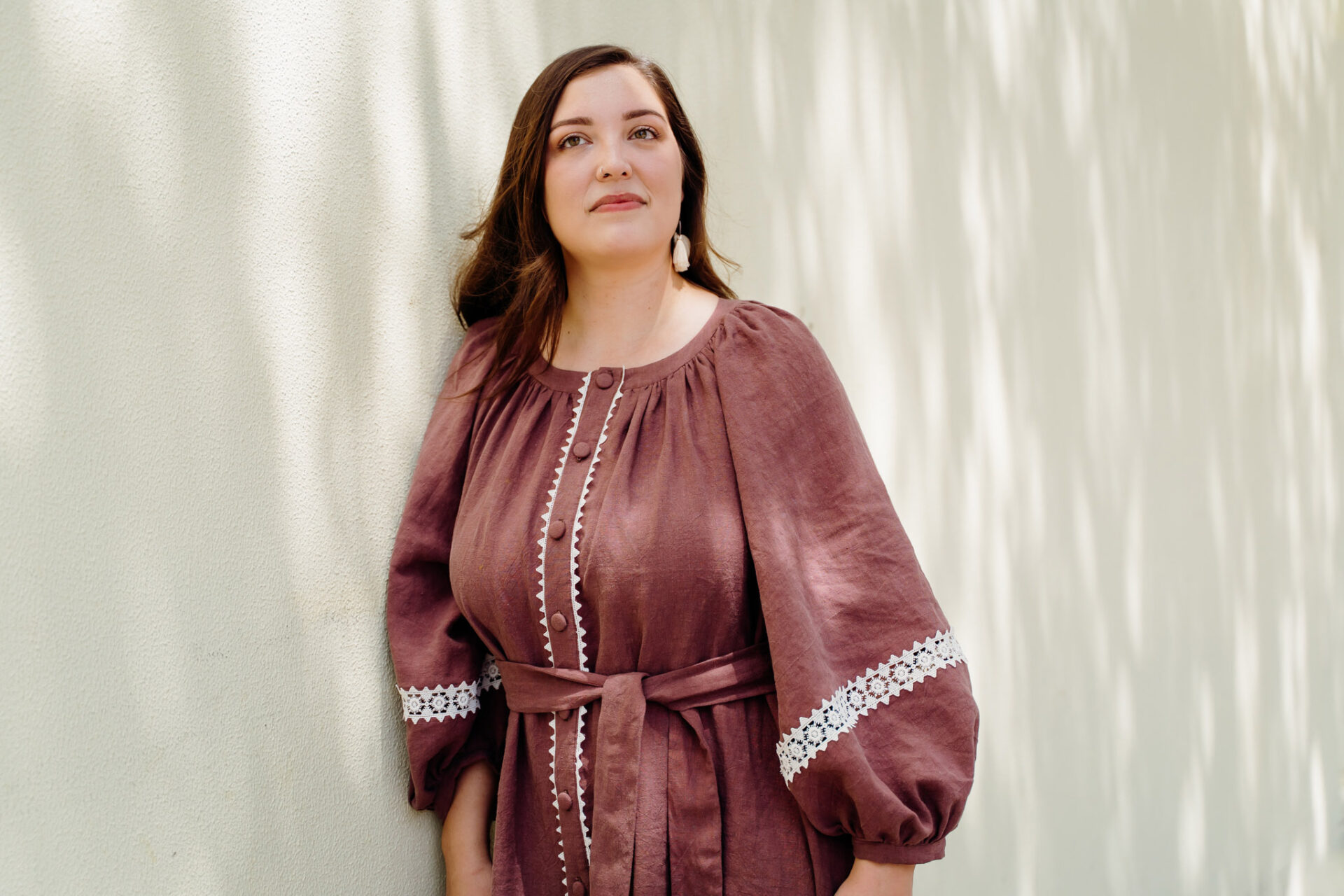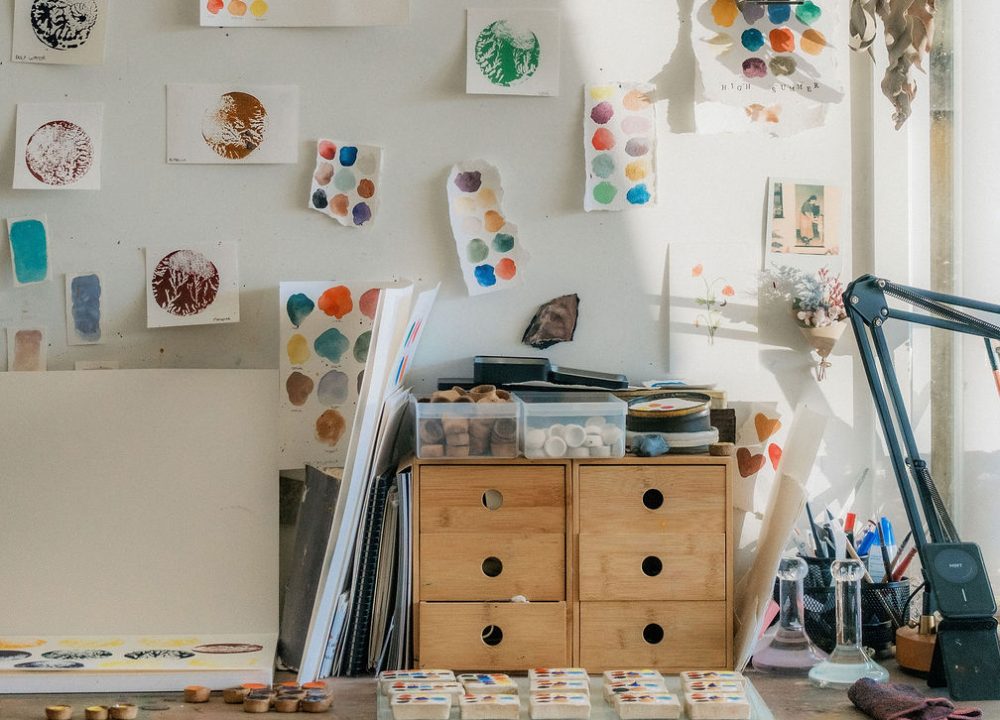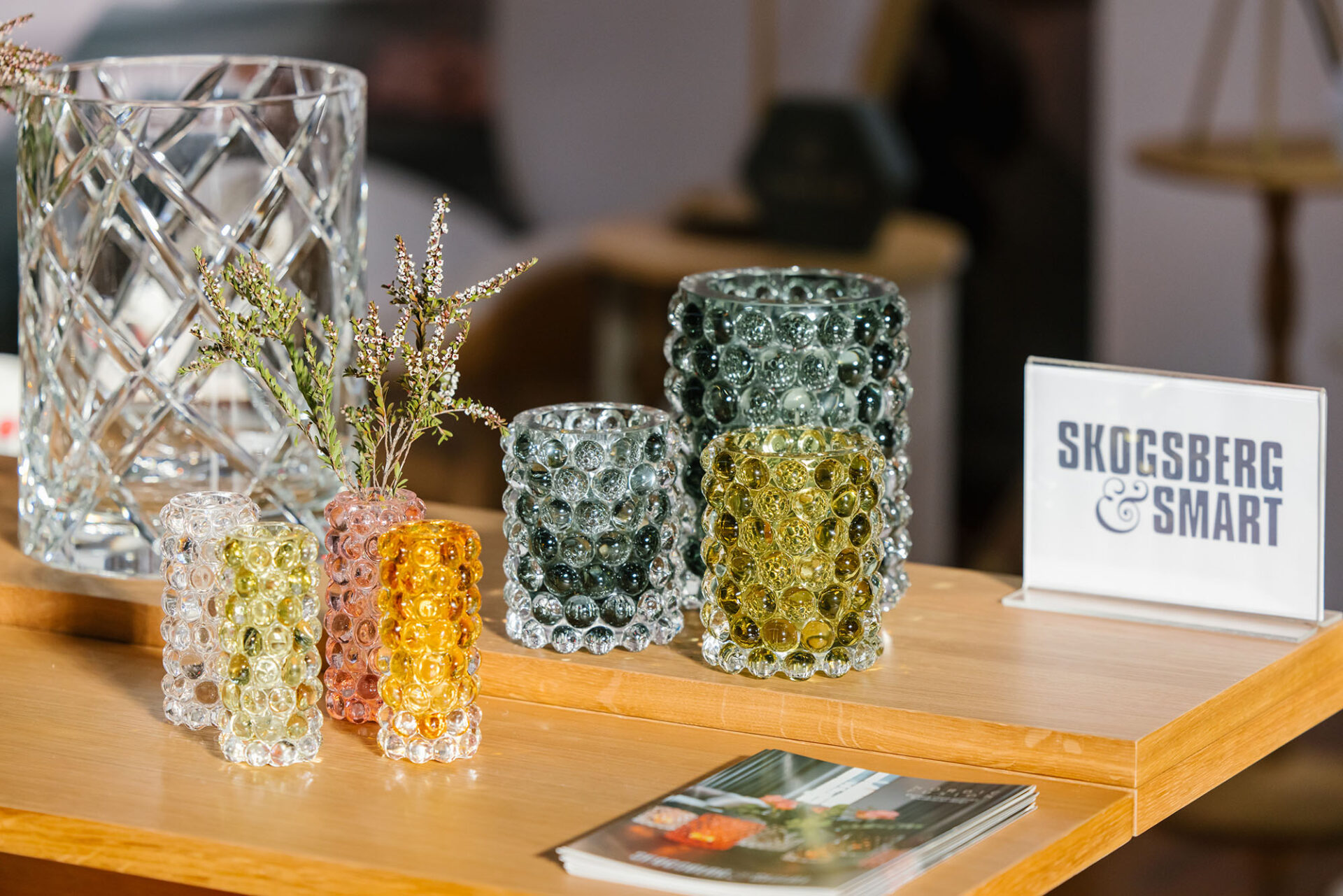Justice, Compassion and Freedom: ASRC World Refugee Day Telethon Is Back!
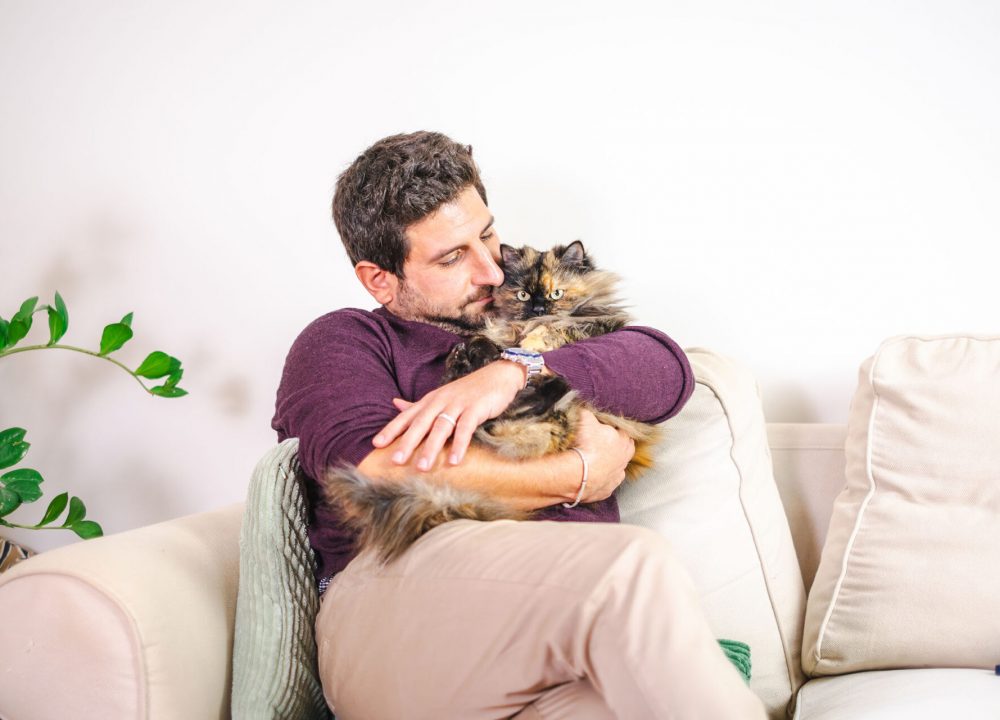
- Words by Peppermint
Twenty four years ago, the Asylum Seeker Resource Centre (ASRC) opened its doors with a simple mission: to stand for justice, compassion and freedom. What began as a TAFE project in 2001 by Kon Karapanagiotidis, then a teacher, the ASRC has gone on to become Australia’s largest human rights organisation providing support to people seeking asylum. And they need our help more than ever: the ASRC World Refugee Day Telethon is back on Friday 20 June 2025.
The World Refugee Day Telethon is your chance to stand with refugees and people seeking asylum – celebrating their strength, resilience and the incredible diversity they bring to our communities. Wherever you are in Australia, you can help raise vital funds to provide food, shelter, healthcare, legal aid and other essential services. Your donations also power the ASRC’s advocacy work to create lasting change. Expect special guests, live performances, a silent auction and powerful interviews with refugees, community leaders and supporters who are helping create change. The ASRC are also donating $5,000 to five refugee-led organisations to celebrate the vital role refugees play in building thriving, inclusive communities – with the recipients to be announced live on the day! The ASRC Telethon is more than a fundraiser – it’s a national movement of solidarity and action.
We speak to Frida Umuhoza and Bahaa Dabbagh, leaders of the refugee community in Australia and heroes of the World Refugee Day Telethon 2025. They are lending their voices to champion the rights of people seeking asylum and refugees. Their advocacy work aims to amplify the experiences and voices of other people with lived experience to bring awareness to the challenges refugees face around the world. Follow the Telethon on Friday 20 June 2025 and donate to give much-needed funds to the ASRC and their important work.
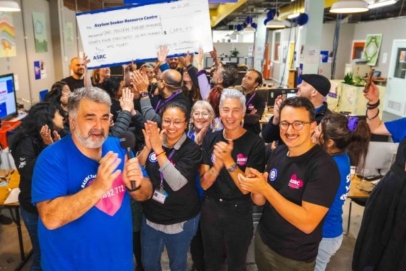
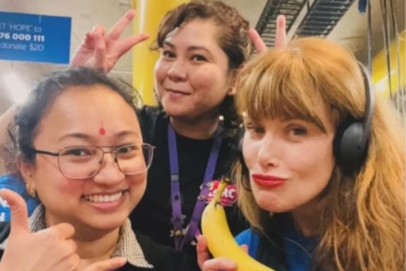
Bahaa Dabbagh
Bahaa Dabbagh is a Syrian comedian, cook and storyteller whose work celebrates the richness of Syrian culture and the power of laughter, food and belonging. Born in Saudi Arabia and raised in Aleppo, Bahaa fled the Syrian war in 2015, spending six years in Turkey before settling in Melbourne in 2021 – with his beloved cat, Sasha, in tow.
From mechanical engineer to comedian with mental health issues, Bahaa has rebuilt a life grounded in joy and community. He’s a culinary educator with Free to Feed, a stand-up comic who’s graced stages across Australia (including the 2025 Stand Up for Refugees gala) and the creator of the Refugee Thoughts podcast, which explores everyday refugee stories through humour and heart.
Bahaa draws on his mother’s recipes and Aleppo’s culinary traditions to create dishes rich with memory – from tangy Fattoush to his beloved lamb and cauliflower stew. Cooking, for Bahaa, is a way to feel like himself again – and to bring others closer to Syria’s deeper heritage of science, poetry and generosity.
Bahaa’s story is a vibrant reminder that “you don’t wait to belong – you build it.” Through food, performance and connection, he’s weaving new threads of home and identity in Australia.
Bahaa, can you share your story with us?
I am a refugee from Syria. I left Syria ten years ago, in July 2015. It’s very hard to think about what defines a person when you try to talk about who you are. But I have a lot of skills, I have a lot of things that really describe me, but I think I’m just a person who is trying to do the best they can with the time they have in this world.
I left Syria because of the revolution, and the war that happened after the revolution in Syria. And that was a very hard time for a very long time. I left Syria with my cat and I went to Turkey for a while. I lived there for six years before coming to Australia.
There are many memorable stories of how I brought my cat with me. Throughout the journey, the people got to know my cat very well, because at every checkpoint she was the topic. It was kind of a blessing for a lot of us, because instead of discussing who we were and what we were doing and why we were fleeing, we were discussing the cat, which was a very good place to hide behind.
The theme of this year’s World Refugee Day is ‘Finding Freedom: Diversity in Community’. Reflecting on your journey and unique experiences of being a refugee, what does the idea of community mean to you now?
The definition of community to me is something that keeps evolving. But I think if you feel safe to be you, then you are in a community, because we find belonging in our communities. Community is sometimes something that really unites us. But sometimes it can also separate us. I hope one day we can become a community where everyone feels safe being themselves, where the community just becomes society. But until then, we have to find our small pockets of community within the society.
For refugees – and for migrants in general – a sense of belonging can sometimes be a complicated issue. Do you feel like you belong in this country?
In Australia, I struggle with the sense of belonging, because I’m not Australian, that’s the first thing. But also, when people describe an Australian, no one thinks of people that look like me. And that’s something that really reminds you that belonging is a very interesting thing.
I figured out a way to create belonging by fragmenting it, by making pieces of me belong to pieces of this world. So things like poetry and friendship, those pieces of me belong in Syria. And, when we talk about comedy, that belongs here, because people here see my sense of humour and they like it. Love, I’ve experienced in Turkey the most, and it’s a very beautiful thing to have that.
And my cat, who came with me from Syria to Turkey to Australia, she is where I belong. If she’s around, then I belong, that’s where my centre of belonging is, where I come and hug my cat.
You’ve been an outspoken advocate for refugees. Can you share with us a bit about that?
I approached the advocacy from three layers. I’m someone who works in marketing so I built the marketing funnel and then thought, where is the awareness level? Where is the interest and where is the action level? And I separated it into three things.
The awareness level is for comedy. I want to create awareness about refugees, comedy can reach masses at the top of the funnel, can create something for people who never thought about this issue – you come on stage and people are thinking, this is a fun show. And it is fun, but I also make them think about refugees.
The second layer is food. It’s for people who are interested in food – I bring them a cooking experience. And I try to make them think about refugees. I try to make them experience things that refugees would like them to experience. Those people are lower in the funnel, they are more attuned to the issue of refugees.
And then the action level is where I do my advocacy writing and a podcast. It’s called Refugee Thoughts. It’s something that I’m very passionate about, because there are a lot of people working in the refugee field without access to listen in-depth to refugees stories and experiences at different stages of the refugee experience. This is a very important level – listening to refugees, voices from refugees, that’s the value of the podcast.
It’s me as a refugee interviewing other refugees, trying to create an environment to talk about the things that only refugees can experience. And that’s something that I keep asking in the podcast: what is an experience that if you weren’t a refugee, you would never experience? There are very interesting answers.
So there’s ‘Haha with Bahaa’, which is the comedy. And then there’s ‘Refugee Thoughts’ as the advocacy. And I have ‘Saha with Baha’ – saha is bon appetit in Arabic.
You make people think. You also bring them joy. But what keeps you going? What brings you joy in your life?
To answer the question what fills my cup – at the end of the day some people relax and unwind with wine or whatever it is, for me it’s a hug from my cat. Sasha is very important in my life, next to her is where I belong.
A lot of people spoke to me about this. In Turkey, for instance, I had Syrian friends who were refugees, too. It’s not something that everyone understands and it’s actually harder to understand if you’re a refugee. It’s harder to understand, why would a refugee bring a cat? Because there’s so much privilege in that, I’ve experienced that privilege.
But when my friend in Turkey asked me why, “why are you so fascinated with this cat? What is the big deal about her?” Because I love all cats, but this cat is very different. And I told him the easiest way I can explain it is that I lost everything, and I have her. So she is everything now, because at some point you see a lot of things that are not constant, and you see a lot of things falling apart in your life, and I’m losing friends to war or to refugee journeys.
I have a friend group that is literally scattered all over the world right now. I have friends on every continent right now and it’s a very hard reality to live with. My family is now in Dubai and my twin brother is in France. We’re all scattered and all I could have is this.
So when you asked me what this cat is, this cat is Syria. This cat is home. This cat is everything I don’t have right now.
What does World Refugee Day mean to you?
It’s funny, because when I asked my mom, are you happy about Mother’s Day, she would say every day should be Mother’s Day. And she was right. But the reality that we live in is that attention is so valuable. Attention is the highest level of currency right now. You want attention, that’s what makes change happen.
And that’s why World Refugee Day is a very important day. It’s a very important occasion to remind people that there is this cause, because if you’re not working in this field, it’s not something that is on your mind. So at least once a year, I get to see that people are actually thinking about this topic. Unfortunately, the world we live in still continues to produce refugees.
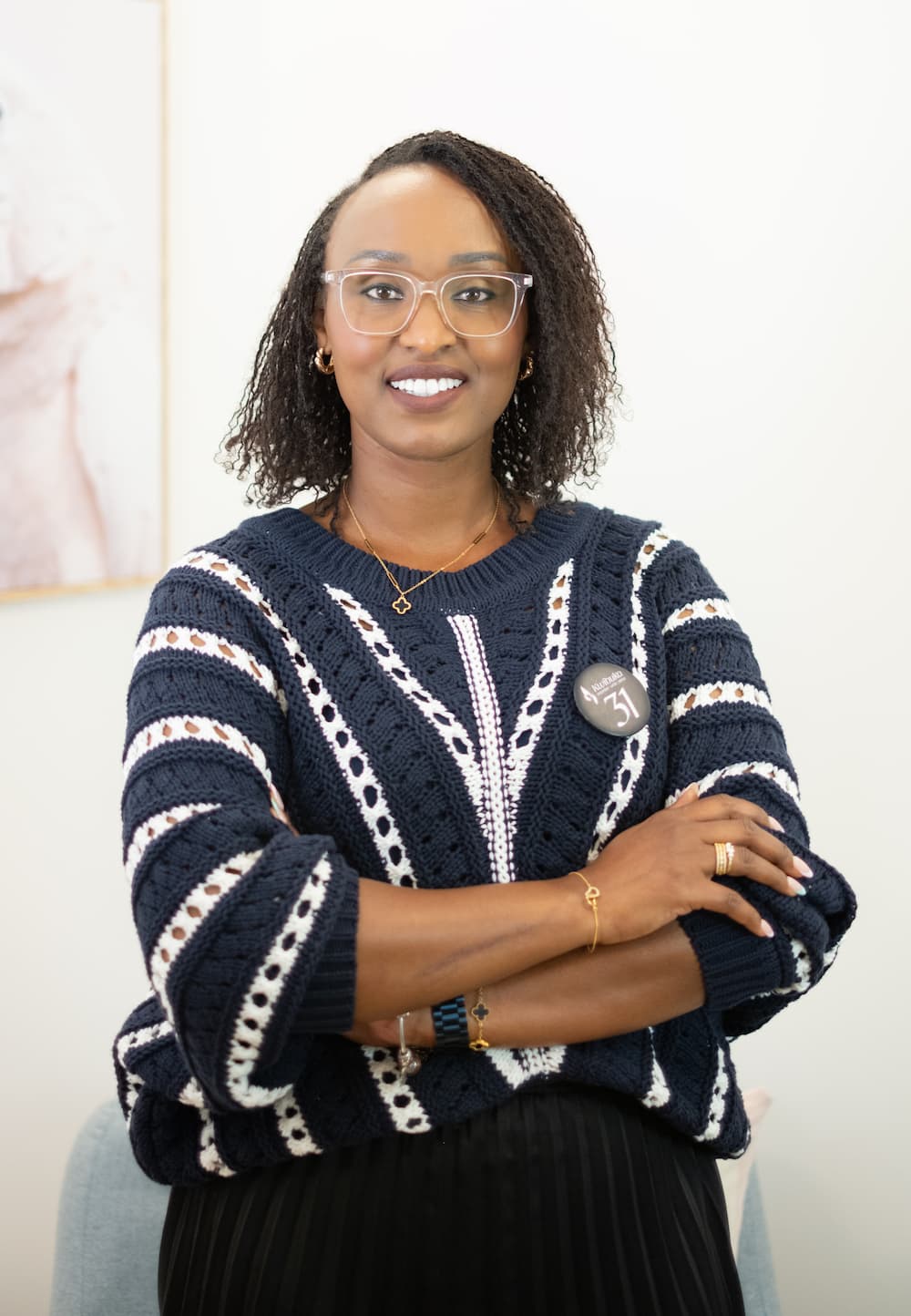
Frida Umuhoza
Frida Umuhoza is a Rwandan-born author, speaker and genocide survivor whose story of survival and strength has touched audiences across the world. The sole survivor of her immediate family during the 1994 Genocide against the Tutsi, Frida was just 14 when her life changed forever. Now, she uses her voice to teach, heal and rebuild. After earning a Communications degree from Bowling Green State University, Frida has gone on to speak at global forums including the United Nations in New York, the Shoah Memorial in Paris and community events across Australia. Her bestselling memoir, Frida: Chosen to Die, Destined to Live (revised as In the School of Resilience), chronicles her extraordinary journey and underscores her belief in forgiveness, faith and the power of community.
In Australia, Frida is deeply connected to both her local and Rwandan diaspora communities. She is a mother of seven, an educator and a champion for justice and healing. She rebuilt her childhood home in Rwanda – brick by brick, memory by memory – to show her children that what is broken can be rebuilt.
Frida embodies the theme of this year’s campaign: Finding Freedom: Diversity in Community. She teaches us that community is where we feel safe, accepted and able to give back.
Content warning: This story contains depiction of graphic violence and death.
Your life changed dramatically at age 14 because of the 1994 Genocide against the Tutsi. Are you able to tell the story of what happened?
I was born in Rwanda, East Africa, and I was one of the six children. My family lived in a small town called Nyanza. My father was a businessman and my mom was a stay-at-home mum. My extended family lived close together in the same village, all my cousins, and that’s where I went to school as well.
In my country in 1994, we had a genocide against my people, the Tutsis, where over a million people were killed in the course of just three months, from April to July 4th.
Now, when we talk about a genocide, it’s not something that happens overnight. Obviously, it’s something that takes a lot of stages in preparation. So prior to that, we the Tutsis lived with discrimination, killing and dehumanisation, and all the stages that lead to the genocide until in 1994, April, it was then declared that the Tutsi people were supposed to be killed and eliminated, from the face of the earth. That’s what the plan was.
My family and all my people were all on the list of the people that were supposed to be killed, we had known that for years. And I had just turned 14 at the time, and my family was attacked on the 7th of May, after we had left home and a lot of people had already been killed in the month of April, and we got scattered.
So when we left my house, my mum decided that she was going to divide us into groups to have a bit more chance of survival. So my mum sent myself and my sister and my cousin to our neighbour. But this was a time where neighbours were killing neighbours, Hutu neighbours: the Hutu majority were the ones that were carrying out the genocide against the Tutsis.
We had a third tribe of the Twa (Batwa), which also joined with the Hutus. So really, there was nowhere to hide. People weren’t willing to hide the Tutsis because if they hid them, they would also put their lives in danger.
After a month of hiding in the bushes, in the forest, after our homes were destroyed, on the 7th of May, my family was attacked. There were 18 people hidden in my grandfather’s house: my grandparents, my mum, my dad was on the roof of the house, my three siblings, (I had four siblings and one sibling had already been killed as a baby).
And on that morning, we were attacked around 3 or 4am in the morning. We’d already been warned the night before that we were supposed to be killed the following day, but because we had been hiding and people had been killed and raped, my grandfather said we should stay together and die.
On that morning, my family was attacked and 16 of us were put in a ditch. They would give you a choice of what was going to kill you, whether you wanted to be killed by a machete, a club, or a spear. But to be shot, you had to pay. Because, again with dehumanization, we were referred to as snakes and cockroaches. So really, they said that snakes and cockroaches don’t deserve bullets.
And so my father, as I said, was hiding on the roof of the house. And the 16 people, when we were told to go in that ditch, I picked a young man – like I mentioned before, we weren’t killed by strangers, we were killed by next door neighbours who were Hutus – so I picked this young man whom my father had paid school fees for, and somebody that I knew very well.
I begged him to kill me with a club, because I knew, with a club, they will hit you in the back of your head 2 or 3 times and you’ll be gone. And my mum was beheaded. My brothers were beaten to death, and I was hit in the back of my head and neck, which damaged all my discs on my neck and I lost my consciousness.
I don’t know how long I was unconscious for, but when I woke up, everybody had died, been killed, and I was buried alive with my entire family. For almost all morning and almost all afternoon, until a woman heard me cry under the ground, and she called somebody that dug me out and saved my life.
But my entire family was killed. My father, who was hiding on the roof, I thought maybe he saw what had happened to us and he ran. He didn’t run. When he saw everything that had happened to us, he offered himself to be killed.
So I was the only survivor of my family. And, I was only 14. And I had to survive day after day. And that is how I lost my entire family, within just one day.
The theme of this World Refugee Day is ‘Finding Community’ – how were you able to regain a sense of belonging?
We as Rwandans, we lost the sense of unity and trust that is normally supposed to exist in the community. What I grew up knowing as what my parents taught me, to not love or hate people for their culture or where they come from. My parents didn’t teach me that I was a Tutsi, I learned that in school when I was six. And so you lose a sense of trust because you are discriminated against, and you’re discriminated against by the people that are in the same community, that are supposed to actually love you.
My family was killed by the people next door, the people that my father had built houses for. And again, that’s the sense of community, helping each other, loving each other and living together. That was taken away from me. And the sense of security, the sense of safety was taken away from us, especially at a very young age.
The trauma and the wounds that are inflicted on your life, not just physically, but emotionally and psychologically, that impacts people in communities and in families.
And so for me, regaining the trust in people is something that I always have to work hard at, I would not shy away from saying that. That is something that I struggle with, because when you are attacked by your own people, then it’s very easy to suspect a stranger that you haven’t actually known, what their intentions are. And so you have to work harder at living in the community and choose to replace hate or bitterness over what was done to you.
It has to be a choice every single day that you accept people for who they are, and also make the choice to not be a bystander when it comes to racism, when it comes to segregation, when it comes to hate speech. And that’s how I decided to actually share my story to many different communities.
You’ve been a very outspoken advocate. Can you share a bit about your advocacy?
So I have advocated from when I turned 18 – that’s when I became vocal sharing my story. And that’s my contribution to educating. But also, when it comes to being vocal and being open about my story, it is to remind everybody that we all have a responsibility.
We see sometimes, even in media, somebody being attacked for what they look like, and told ‘go back home’ or ‘this is not your place’. But this is not your place either.
When somebody leaves their country to come into another country as a refugee or as an asylum seeker, I don’t think you would understand what it takes to leave your home or to be forced out of your home, and to start a life from scratch where you know nothing – you don’t know the culture, you don’t know the language – I think it takes a lot of courage.
And therefore, me being vocal is reminding each person has a responsibility of rebuilding, of helping, of guiding, and of not being a bystander. When you see someone else going through bullying and through discrimination because of where they come from, it’s everyone’s responsibility. No matter what age you are, it does not mean that you have to be a certain age or have a certain education. It’s all of us. Assume responsibility.
It’s my job, and my responsibility as a survivor, to educate the Australian community and all other communities where I can. And I think I will do that until I’m old enough to not talk.
You empower people through your work. What fills you with determination and keeps you pushing forward? Are there any other lessons from the school of resilience that you can share with us?
I have learned that through hate you can actually love. You can actually learn love. Sometimes we think, through hate we learn resentment and anger. But there’s also another side of the coin and you can actually learn love. When we love, we have to love hard, because we’re not going to have the people that we have in our lives forever.
But we also learn that evil is not the way, is not a road that I’m willing to take, or that I would choose to take, because through what was done, the evil that was done to my family, that is a road that I will never, ever want to take, or that I would teach my children to take.
What do you think is the importance of World Refugee Day?
When you see newcomers come, please be kind, be helpful. Especially, don’t say “go back to where you came from”, because probably where they came from is hell. It looks like hell and death. So be kind to the person, because you don’t know what their history and their story is.
Our work is to educate. Sometimes you meet people and they’re like, “Rwanda? Never heard of that.” Okay, that’s normal that you’ve probably never heard of that, but are you willing to learn? Are you willing to help me learn your culture, as I also make you aware of mine? And that’s what this whole community should be about: to work together, to build each other up and not to tear each other down, and everybody to do their bit.
Refugee Week must be something important in schools and organisations, and in our every day. Refugee Week should be respected and taken seriously because I think refugees and asylum seekers are very important people that come into our lives.
The World Refugee Day Telethon, powered by ASRC, is your chance to stand with refugees and people seeking asylum. You can make a donation by phone on June 20 or if you want info about how to donate, you can call 1300 692 772, email ASRC on [email protected] or check the ASRC website for updates.
THIS POST WAS CREATED IN PARTNERSHIP WITH THE INSPIRING FOLK AT THE ASYLUM SEEKER RESOURCE CENTRE
JOIN OUR MAILING LIST
Brighten up your inbox with our not-too-frequent emails featuring Peppermint-related news, events, competitions and more!
explore
More articles
Look, I don’t want to make anyone panic but IT’S DECEMBER!!! If you’re planning to give homemade gifts, you’re going to have to act fast. …
Hang out with us on Instagram
🌻 The Paddington 🌻
This is a much-loved staple, created for Issue 50 in 2021. We love seeing the #PeppermintPaddingtonTop continually popping up in our feeds!
How stunning is our model Elon MelaninGoddessEfon – she told us it was one of the first times she had been asked to come to a shoot with her natural hair. 🌻
We worked with South African patternmaker Sarah Steenkamp of @FrenchNavyNow_ to create this wardrobe essential – the perfect puff-sleeve blouse. Raglan sleeves make it the ultimate beginner sew, plus the gorgeous back buttons let you add your own personal twist.
Pattern via the link in bio! 🪡
Photos: @KelleySheenan
Fabric: @Spoonflower
Model: MelaninGoddessEfon

“In the 1940’s, Norwegians made and wore red pointed hats with a tassel as a form of visual protest against Nazi occupation of their country. Within two years, the Nazis made these protest hats illegal and punishable by law to wear, make, or distribute. As purveyors of traditional craft, we felt it appropriate to revisit this design.”
Crafters have often been at the heart of many protest movements, often serving as a powerful means of political expression. @NeedleAndSkein, a yarn store in Minnesota, are helping to mobilise the craftivists of the world with a ‘Melt The Ice’ knitting pattern created by @Yarn_Cult (with a crochet pattern too), as a way of peaceful protest.
The proceeds from the $5 pattern will go to local immigrant aid organisations – or you can donate without buying the pattern.
Raise those needles, folks – art and craft can change the world. 🧶
Link in bio for the pattern.
Images: @Gather_Fiber @NeedleAndSkein @a2ina2 @KyraGiggles Sandi.204 @WhatTracyMakes AllieKnitsAway Auntabwi2
#MeltTheIce #Craftivism #Knitting #CraftForChange

TWO WEEKS TO GO! 🤩
"The most important shift is moving from volume-led buying to value-led curation – choosing fewer, better products with strong ethics, considered production and meaningful stories. Retailers have real influence here: what you buy signals what you stand for. At Life Instyle, this means using the event to discover and invest in small-scale, planet-considerate brands that align with your values and your customer’s conscience. Consumers don’t need more things; they need better things, and retailers play a key role in selecting, contextualising, and championing why those products matter."
Only two more weeks until @Life_Instyle – Australia`s leading boutique retail trade show. If you own a store, don`t miss this event! Connect with designers, source exquisite – and mindful – products, and see firsthand why this is Australia’s go-to trade show for creatives and retailers alike. And it`s free! ✨️
Life Instyle – Sydney/Eora Country
14-17 February 2026
ICC, Darling Harbour
Photos: @Samsette
#LifeInstyle #SustainableShopping #SustainableShop #RetailTradeEvent

Calling all sewists! 📞
Have you made the Peppermint Waratah Wrap Dress yet? Call *1800 I NEED THIS NOW to get making!
This gorgeous green number was modelled (and made) by the fabulous Lisa of @Tricky.Pockets 🙌🏼
If you need a nudge, @ePrintOnline are offering Peppermint sewists a huge 🌟 30% off ALL A0 printing 🌟 when you purchase the Special Release Waratah Wrap Dress pattern – how generous is that?!
Head to the link in bio now 📞
*Not a real number in case that wasn`t clear 😂
#PeppermintWaratahWrapDress #PeppermintPatterns #SewingPattern #WrapDress #WrapDressPattern

8 Things to Know About January 26 - from @ClothingTheGaps:
Before you celebrate, take the time to learn the truth. January 26 is not a day of unity it’s a Day of Mourning and Survival for Aboriginal and Torres Strait Islander peoples.
It marks the beginning of invasion, dispossession, and ongoing colonial violence. It’s time for truth-telling, not whitewashed history.
Stand in solidarity. Learn. Reflect. Act.
✊🏽 Blog written by Yorta Yorta woman Taneshia Atkinson.
🔗 Link in bio of @ClothingTheGaps to read the full blog
#ChangeTheDate #InvasionDay #SurvivalDay #AlwaysWasAlwaysWillBe #ClothingTheGaps

As the world careens towards AI seeping into our feeds, finds and even friend-zones, it`s becoming increasingly hard to ignore.
We just wanted to say that here at Peppermint, we are choosing to not print or publish AI-generated art, photos, words, videos or content.
Merriam-Webster’s human editors chose `slop` as the 2025 Word of the Year – they define it as “digital content of low quality that is produced usually in quantity by means of artificial intelligence.” The problem is, as AI increases in quality, it`s becoming more and more difficult to ascertain what`s real and what`s not.
Let`s be clear here, AI absolutely has its place in science, in climate modelling, in medical breakthroughs, in many places... but not in replacing the work of artists, writers and creatives.
Can we guarantee that everything we publish is AI-free? Honestly, not really. We know we are not using it to create content, but we are also relying on the artists, makers and contributors we work with, as well as our advertisers, to supply imagery, artwork or words created by humans. AI features are also creeping into programs and apps too, making it difficult to navigate. But we will do our best to avoid it and make a stand for the artists and creatives who have had their work stolen and used to train AI machines, and those who are now losing work as they are replaced by this energy-sapping, environment-destroying magic wand.
Could using it help our productivity and bottom line? Sure. And as a small business in a difficult landscape, that`s a hard one to turn down. We know other publishers who use AI to write stories, create recipes, produce photo shoots... but this one is important to us.
`Touch grass` was also a Merriam-Webster Word of the Year. We`ll happily stick with that as a theme, thanks very much. 🌿

